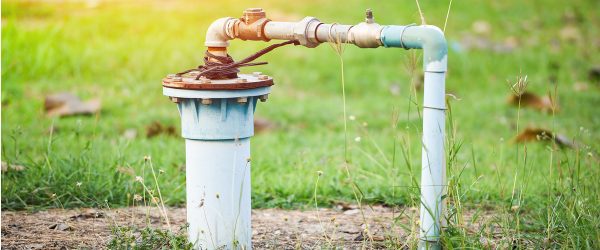UNC Charlotte research, outreach efforts on well water safety in Gaston County to expand

A significant proportion of Gaston County residents get their drinking water from private wells and other unregulated sources, particularly in the county’s northern and western rural communities. Yet, only a small fraction of residents test their water regularly.
A UNC Charlotte team of researchers and students will work with residents and county health officials to boost the number of people doing tests regularly and improve the sharing of data. A $49,999 award from the state Environmental Enhancement Grant program will support the efforts, which will begin in summer 2022.
While groundwater typically is pure, contaminations from natural and manmade sources can pose health risks. Contaminants can come, researchers say, from industry pollution, leaks from landfills, septic tanks, fertilizers, coal ash ponds and animal waste, while other contaminants like arsenic can occur naturally.
“Very few residents do frequent testing for water contamination, in large part because they are not aware of the need and because of the cost,” said project leader Éric Delmelle, a faculty member in the Department of Geography and Earth Sciences. “This new project will educate homeowners and renters on the need to test their well water and create tools so they can share their test findings. By essentially crowdsourcing the data, the residents can access time-sensitive groundwater risk maps and other information to protect themselves and their communities.”
The project will build upon the Healthy Wells initiative, funded by the Centers for Disease Control and Prevention, with additional funding from the Water Resources Research Institute of the UNC System. Since 2015, UNC Charlotte faculty and student researchers have partnered with the Gaston County Department of Health and Human Resources to create a digitized spatial database of well water quality.
The UNC Charlotte team scoured more than 8,000 paper-based public land records dating to 1980 to locate private wells. They confirmed the wells’ existence through in-person visits, noting whether the wells were installed, repaired or abandoned.
Students under faculty and county officials’ supervision tested water from 1,250 of those private wells and identified contaminated areas. UNC Charlotte built a geodatabase that allows mapping based on the varied levels of contamination and published scientific papers detailing results of the research. With the new funding, the team will map the probability of risks and use that information to create recommendations for levels of testing.
They plan to survey at least 15% of the residents to determine how aware people are of the issue, their attitudes toward testing and factors that might affect their perspectives, and if they currently are taking action. The team will use this information to develop an information campaign in partnership with county health officials.
The team members will go door-to-door to distribute risk map information in regions affected by contamination and to offer additional testing in areas where it is either recommended or strongly recommended, based on data and modeling showing actual levels and likelihood of contamination.
A proposed one-day groundwater summit would focus on well owner education, governance and policy issues, pollution prevention and user-friendly technology for monitoring and maintenance. A well drillers workshop will obtain information from this specialized group and also educate them.
UNC Charlotte’s Center for Applied GIScience (CAGIS), housed in the Department of Geography and Earth Sciences, will coordinate the project and has led the University’s involvement in the Healthy Wells project the past few years. The interdisciplinary research center uses advanced space-time theories, methods, and technologies in Geographic Information Science to focus on resource and sustainability issues.
“The new award exemplifies UNC Charlotte’s commitment to addressing our region’s unique needs using community-based research and engagement,” said Douglas Shoemaker, the center’s director of research and outreach and a project lead. “Our working group, based in the center, is well known for developing web-based maps that inform stakeholders, but it also is important to understand the barriers to well water safety so that we can tune analyses and outreach to the needs of the community.”
CAGIS Executive Director Wenwu Tang also will provide leadership with the project, which North Carolina Attorney General Josh Stein commended for its focus on community-centered solutions.
“Clean drinking water is essential to our health and quality of life,” said Stein, when announcing the funding. “I’m hopeful that this grant will help people in Gaston County test their well water and give us a better understanding of their water quality issues.”
The Environmental Enhancement Grant program began after an agreement between the Attorney General’s Office and Smithfield Foods in 2000. Under that agreement, Smithfield provides $2 million to the state every year to be distributed among environmental projects across North Carolina. Stein will award nearly $3 million in grants to 27 grantees in 2021.